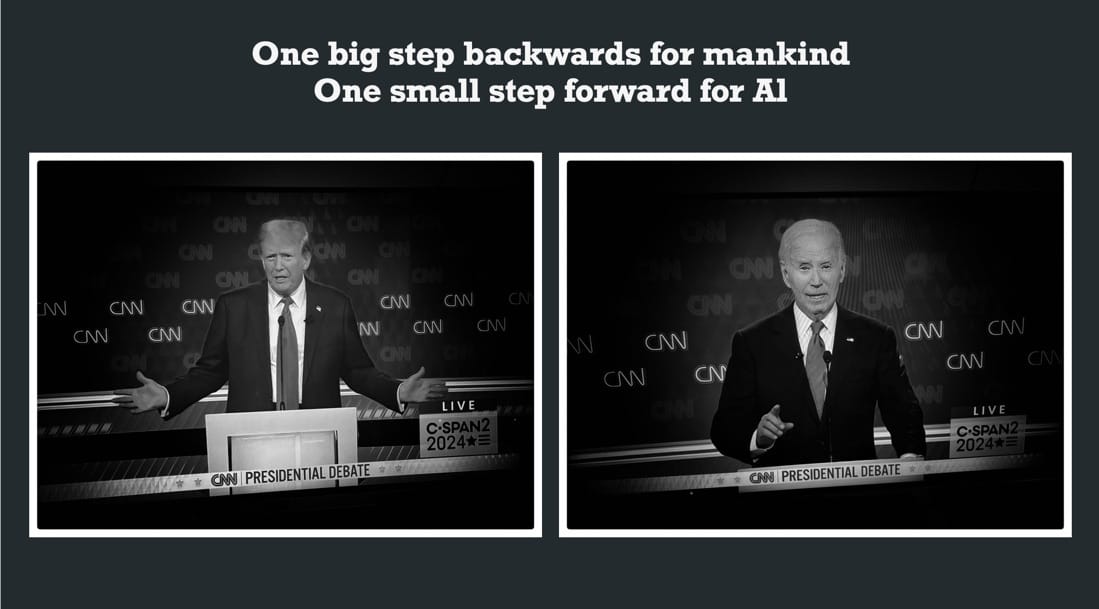One big step backwards for mankind, one small step for forward for AI
The sad reality is that if voters had spent half the time they spent watching the debate and the press coverage afterward chatting with ChatGPT, they would have been more informed about which candidate to vote for.

The sad reality is that if voters had spent half the time they spent watching the debate and the press coverage afterward chatting with ChatGPT, they would have been more informed about which candidate to vote for. Here is what AI had to say. While I didn't fact-check it, I'm confident it's more factual and contains fewer hallucinations than last night debate.
AI-generated tools such as ChatGPT have the ability to give valuable perspectives, undoubtedly aiding voters in becoming more enlightened; however, they cannot serve as a substitute for conventional involvement or gathering of political information. In a democracy, the ability to make decisions is still contingent upon two primary factors— fact-checking and critical thinking.
Here is what AI had to say about the event.
- Debate Performance and Public Perception:
- President Joe Biden's debate performance was widely criticized, with concerns about his age and ability to effectively communicate being highlighted. His struggles during the debate led to a sense of panic among Democrats and raised questions about his viability as a candidate.
- Former President Donald Trump, while criticized for making false statements and spreading misinformation, appeared more energetic and assertive, which may have bolstered his standing among his supporters.
- Fact-Checking and Misinformation:
- AI as an Informational Tool:
- AI systems like ChatGPT can provide detailed, fact-checked information on a wide range of topics, potentially offering a more balanced and comprehensive understanding of the candidates' positions and the issues at stake.
- However, the reliability of AI-generated information depends on the quality of the data it is trained on and the safeguards in place to prevent the spread of misinformation. While AI can reduce the influence of biased media coverage, it is not infallible and can also produce errors or "hallucinations."
- Global and Domestic Reactions:
- Biden's debate performance not only caused concern domestically but also attracted international dismay, highlighting the global implications of the U.S. presidential election.
- The debate's impact on voter preferences remains uncertain, with many voters likely to base their decisions on a combination of debate performances, policy positions, and personal biases.





